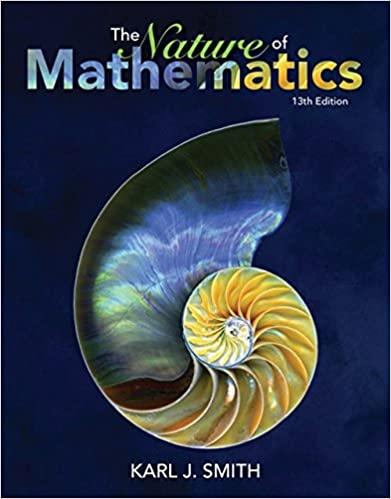A famous mathematician, Bertrand Russell, created a whole series of paradoxes by considering situations such as the
Question:
A famous mathematician, Bertrand Russell, created a whole series of paradoxes by considering situations such as the following barber’s rule:
“Suppose in the small California town of Ferndale it is the practice of many of the men to be shaved by the barber. Now, the barber has a rule that has come to be known as the barber’s rule: He shaves those men and only those men who do not shave themselves. The question is: Does the barber shave himself?” If he does shave himself, then according to the barber’s rule, he does not shave himself. On the other hand, if he does not shave himself, then, according to the barber’s rule, he shaves himself. We can only conclude that there can be no such barber’s rule. But why not? Write a paper explaining what is meant by a paradox. Use the Historical Note in the margin for some suggestions about mathematicians who have done work in this area.
Step by Step Answer:






